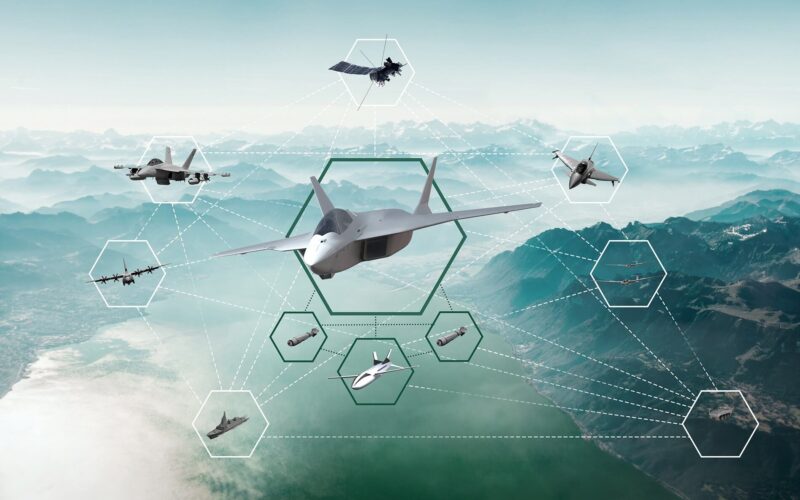The Spanish defense electronics group Indra supported by its French partner Thales and the German consortium FCMS received the green light to begin a concept study aimed at designing the sensors of the Future Combat Air System, the European combat “system of systems” program.
The contract was signed between the French Armament General Directorate (DGA) on behalf of the three nations involved in the program, and Indra as leader of the industrial consortium on November 23, 2020. The company, chosen to be Spain’s main industrial participant in the FCAS program, will be supported by the French group Thales, and the German consortium FCMS which regroups Hensoldt, Diehl Defense, ESG, and Rohde & Schwarz.
The research aims to develop “a connected and distributed architecture of sensors” in order for the weapons system to “face the operational challenges foreseeable by 2040.” The concept study is to last one year, with the possibility of an extension of another six months.
The integration of the sensors adds a new “pillar” to the phase 1A of the program. In February 2020, France and Germany already defined the first five as such:
-
Next-Generation Fighter (NGF) with Dassault Aviation as prime contractor and Airbus as main partner, which will be the main element of the Future Air Combat System;
-
Unmanned systems Remote Carrier (RC) with Airbus as prime contractor and MBDA as main partner;
-
Combat Cloud (CC) with Airbus as prime contractor and Thales as main partner;
-
Engine with Safran as prime contractor and MTU as main partner
-
Simulation/Coherence
The last module which concerns the stealth capacity of the NGF should be presented in the future. In this domain, two serious candidates could be competing: Dassault Aviation, with the experience it acquired while developing the nEUROn combat drone demonstrator, and Airbus which revealed its own stealth drone demonstrator, LOUT, developed in secret.

